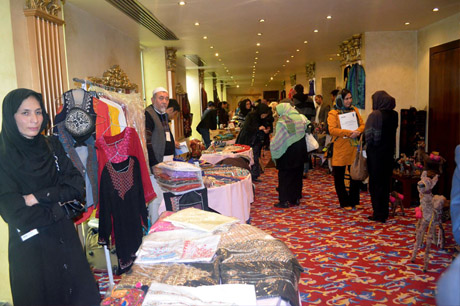Although Entrepreneurship in Afghanistan remained somewhat tenacious but, decades of conflicts have decided the country’s fate. the country’s miserable era was started since the Soviet Invasion in the year 1979 which lasted for 9 years till 1989, the thereafter civil war among different Afghan warlords, followed by the Taliban tenure and the US war, which was started in 2001, as a result, all the institutions were obliterated including the financial system and economic sectors of Afghanistan.
Entrepreneurship is the key source to restore the war-affected institutions of Afghanistan. however, over the last five years the economy of Afghanistan has improved as compared to erstwhile, such as; the number of infrastructural projects, investments, the opening of Afghanistan’s trade corridors with China, Azerbaijan, Turkey and India and the declaration of Afghanistan as one of the top 10 improvers in doing business.
Despite the abundance of natural resources in Afghanistan, the country still requires facilitated platforms to manage them, as yet there has been no proper management and utilization of those resources, that could yield the economy of Afghanistan. Hence, there is an immense need for Entrepreneurship to become conventional in Afghanistan which unfortunately faces serious complications in the country.
Following are the major factors that thwart Entrepreneurial activities in Afghanistan:
Socio-Political Issues
pressures from people of high ranks with influencing networks with central and local authorities have engendered a halt for start-ups in terms of paying them a certain amount of money as a commission and several installments, in order to allow the Entrepreneurs, establish and run their ventures. Second, the ambiguous political system in Afghanistan creates an atmosphere of untrustworthiness in minds of the individuals to undertake start-ups.
Third, the threat of extremism from beyond the Durand line, and the insurgent groups entering into Afghanistan, fighting the Afghan government, forcing the local residents for cultivating narcotics which is monetarily lucrative both for the local residents and the insurgents. This practice diverts the local and small starters from running their desired businesses to the illegitimate businesses i.e. trade in narcotics, the majority of which is carried out through Pakistan.
Socio-economic Factors
Although, in the initial years of President Ghani’s tenure of presidency, he had promised to provide 2.1 million jobs within the next years but, the unemployment rate is expected to be 8.90% in the year 2019, it is further projected to be around 8.80 in the year 2020.
A statistical study shows that the poverty rate of Afghanistan raised to 58% in the years 2016-17 from 38% in 2011-12 which is now 36% and another 37% of the population lives above the specified poverty line, and half of the population is living on less than a dollar per day. Shubam Chaudary, the World Bank director for Afghanistan said about the survey carried out by the World Bank; “High poverty rates represent the combined effect of strategic economic growth, increasing demographic pressure, and deteriorating security situation”.
Lack of Confidence on the Brand
Earlier most of the products made in Afghanistan would intentionally being sold under Chinese, Pakistani, and Indian trademarks, the reason behind this was that, the brand image of the Afghan Manufacturing enterprises is misperceived in the minds of the customer, which is why the Afghan Investors being likely to do investments in the products being imported from outside, rather than the domestic products.
Further, a large number of Afghan Businessmen are running their businesses in China, Dubai, India, and Pakistan, this practice severely affects both the GNP (Gross National Product) and GDP (Gross domestic product) of Afghanistan, for instance, The Afghan Refugees living in Pakistan, run their businesses over there, many of them buy/sell the Afghan products under the different brand names, which severely affects the brand image of Afghan enterprises.
Therefore, the Afghan Entrepreneurs are not ready to initiate their ventures in Afghanistan, due to the low brand image of the Afghan products.
Absence of Fund/credit providing Institutions
Unlike other countries, Afghanistan has no sufficed funding organizations for Start-ups, which is a major deterrence for the individuals who wish to instigate new ventures. on the other hand, in India, there are number of facilitated organizations providing funds for Start-ups, such as; Angel Funding for Start-ups in India, Seed Funding for Indian Start-ups, Business Startup Funding Company India, these organizations have made it quite easy for the individuals to start their ventures, which is why India is lucrative for new ventures. the unavailability of Fund providing Organizations in Afghanistan impede the Afghan Entrepreneurs to start their businesses.
What Should be done?
In order to avert the country’s economic slowdown, the Government of Afghanistan must avail proper financial platforms for Start-ups and Entrepreneurs who will to undertake ventures. There needs to be sufficed Fund providing institutions for start-ups.Entrepreneurship should be kept away from the political influences, the required Capital has to be made available for the Starters, the Afghan Brand image should hold a trustworthy position and a reliable identification both in domestic and international markets.
The writer is Hamayun Khan
 Afghanistan Times
Afghanistan Times




